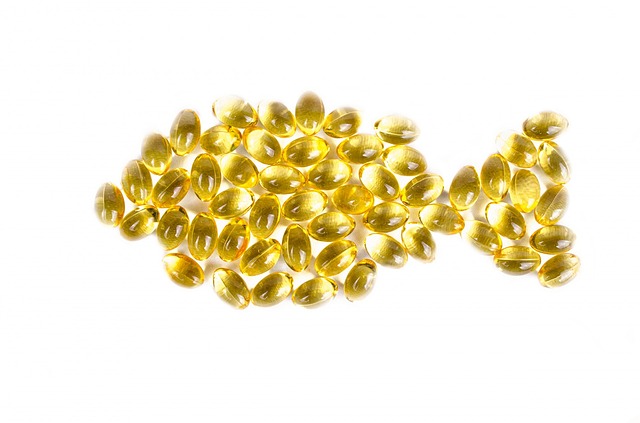Have you ever been extremely tired and then all of a sudden felt a burst of energy? More than likely, the sudden burst was due to the release of adrenaline and cortisol from your adrenal glands, a pair of glands that lie on top of each kidney. If you have ever been suddenly frightened, you know what it feels like to have adrenaline surge through your body. Adrenaline was designed to give the body that extra energy boost to escape from danger.
Some basic control mechanisms are geared toward counteracting the everyday stresses of life. However, if stress is extreme, unusual, or long lasting, these control mechanisms can be quite harmful. Stress triggers a number of biological changes controlled and regulated by the adrenal glands.
An abnormal adrenal response, either deficient or excessive hormone release, significantly alters an individual’s response to stress. Often the adrenals become “exhausted” as a result of constant demands placed upon it. Adrenal fatigue is a common side effect of continual stress and corticosteroid administration (e.g., the use of prednisone). An individual with adrenal fatigue or exhaustion will suffer from chronic fatigue and may complain of feeling “stressed out.” They will typically also have a reduced resistance to allergies and infection.
Supporting the Adrenal Gland
Relaxation techniques seek to counteract the results of stress by inducing its opposite reaction – relaxation. Although an individual may relax by simply sleeping, watching television, or reading a book, relaxation techniques are designed specifically to produce the “relaxation response.”
The physiological effects of the relaxation response are opposite to those seen with stress. The relaxation response is designed for repair, maintenance, and restoration of the body.
To achieve the relaxation response a variety of techniques may be employed, e.g., meditation, prayer, progressive relaxation, self-hypnosis, and biofeedback. The type of relaxation technique best for each person is totally individual. The important thing is that at least 5 to 10 minutes be set aside each day for the performance of a relaxation technique. These sessions will also remind you to breath in a relaxed effective manner.
Nutritional Adrenal Support
Foremost in the nutritional support of proper adrenal function is to eat a low glycemic diet. Avoid refined sugars, especially sucrose and high fructose corn syrup; pastries; doughnuts; beverages packed full of sugars (soft drinks, sports drinks, and many coffee beverages); and other high sugar foods. The sugars in these foods are quickly absorbed into the bloodstream, causing a rapid rise in blood sugar and severely stressing blood sugar control. It is also important to limit starches, pasta, bread, and other carbohydrate to very small portion sizes.
Fluctuations in blood sugar severely stress adrenal function and are a common cause of excess cortisol. Elevated cortisol levels are not only associated with increased feelings of stress, but also loss of appetite control, cravings for sugar, and weight gain. Too much cortisol is also linked to weakening of the immune system, depression, loss of muscle mass, osteoporosis, and brain atrophy.
Take a High Quality Fish Oil
Fish oils concentrated for DHA and EPA have been shown to have positive effects for patients with many different types of psychological disorders associated with stress including depression, bipolar disorder (manic depression), borderline personality disorder, and attention deficit disorder with hyperactivity (ADHD). Positive results in clinical trials in these psychological disorders indicate that EPA and DHA may exert an effect in blunting the stress response.
In an elaborate double-blind study conducted at Michigan Technological University, blood pressure, heart rate, muscle sympathetic nerve activity, and blood flow through the calf were recorded during a 5-minute experiment involving exposing 67 non-hypertensive subjects to mental stress. The assessment was made before and after 8 weeks of fish oil or placebo supplementation. The dosage of fish oil provided 1.6 g EPA and 1.1 g DHA for total EPA+DHA of 2.7 g.
Results showed that fish oil reduced the increase in heart rate and muscle sympathetic nerve activity produced by mental stress. These results indicate that fish oils reduced the effects of the sympathetic nervous system on the cardiovascular system indicating that some of its beneficial effects in both psychological and cardiovascular disorders are due to this central effect.
The take away message is that it is important to take roughly 3,000 mg EPA+DHA if a person is exposed to significant mental stress on a daily basis, as it is good for your brain and heart as well as your ability to deal with stress.
Herbs for Adrenal Support
Several botanical medicines support adrenal function. Most notable are Chinese ginseng (Panax ginseng), Siberian ginseng (Eleutherococcus senticosus), rhodiola (Rhodiola rosacea), and ashwaganda (Withania somnifera). All of these plants exert beneficial effects on adrenal function and enhance resistance to stress, and are often referred to as “adaptogens” because they help us adapt to (cope with) stress. These plants have historically been used to:
• Restore vitality in debilitated and feeble individuals.
• Increase feelings of energy.
• Improve mental and physical performance.
• Prevent the negative effects of stress and enhance the body’s response to stress.
These herbs can be used individually or in combination.
Ashwaganda (Withania somnifera), in particular, has shown impressive clinical results in dealing with stress. It works with the body’s natural biological systems to help restore balance to the body and normalize body functions. Two Ashwagandha extracts have exceptional scientific support. KSM-66 and Sensoril. Follow dosage instructions for either of these two high quality extracts.

